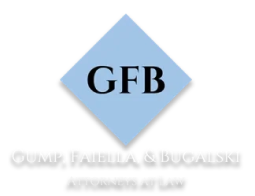Thousands of students participate in their schools’ athletic programs every year. These sports aren’t inherently designed to cause harm, but due to the nature of physicality and contact, injuries occur regularly. Minor injuries like cuts and bruises have a fairly short recovery time. Breaks and sprains are more severe and could be season-ending. Brain injuries, however, are some of the most severe and can permanently alter an athlete’s future.
The CDC defines traumatic brain injury (TBI) as a disruption of normal brain function due to a bump or blow to the head. In sports circles, TBI is commonly associated with concussions, although a concussion is one of the more mild forms of TBI. Until recently, concussions and mild TBI weren’t regarded as a serious problem for student athletes. Fortunately, medical studies and public awareness has changed the way schools approach these problems in their athletic departments.
KANSAS AND MISSOURI RULES ON TBI PREVENTION IN SCHOOL SPORTS
In Kansas, student athletes are protected under the School Sports Head Injury Prevention Act. Students and parents are to be made fully aware of TBI and concussion risk in school sports. Additionally, coaches are required to evaluate any player they suspect may have obtained a head injury. Under the law, players cannot return to the game or practice until they have been cleared by medical staff. Missouri has similar standards in place that focus on educating students and their families beforehand, and taking precautions during sports activities to help prevent or immediately diagnose brain injuries.
REHAB AND THERAPY FOR STUDENT SPORTS INJURIES – WHO PAYS THE BILLS?
While technology and modern medicine continue to improve, opening more doors for recovery, TBI victims still face a long rehabilitation process. Depending on the severity of the concussion or brain injury, student athletes may need long-term hospitalization followed by ongoing therapy.
Specialized medical care is usually required. TBI victims can expect to work with physical, occupational, and recreational therapists as well as speech pathologists to regain their motor skills and cognitive abilities. Neurologists, psychiatrists, and social workers might also be called in to work the case.
The cost of recovery isn’t cheap, and not all rehabilitation specialists are covered by traditional medical insurance. In certain cases, litigation may be an option for the families of a TBI victim. If the school was not following state-mandated protocols to prevent and diagnose TBI, victims may be eligible to receive compensation to pay for their medical expenses and ongoing treatment.
Families who are already swamped with medical bills don’t always want to start an emotional legal battle, but settling your case in court can result in two important things. First, it can give you the necessary financial compensation you need to pay for your child’s ongoing treatment and recovery. Secondly, it can raise awareness of an ongoing problem in our community and help to enact change.
If your child is suffering from TBI caused by a sports injury, you don’t need to handle everything on your own. Tatlow Gump Faiella and Wheelan injury lawyers can help determine if a lawsuit is in your best interest. We’re committed to providing you with the most accurate legal counsel possible so you can make the best decision for your family.
As your local Missouri and Kansas personal injury lawyers, we know the ins and outs of state laws, and we can get you the compensation you need and the justice you deserve. Contact us today to schedule your free, no-obligation consultation. 888.262.2718
Sources:
The post The Impact of Concussions and Traumatic Brain Injuries on Student Athletes appeared first on Gump & Faiella, LLC | Missouri.

